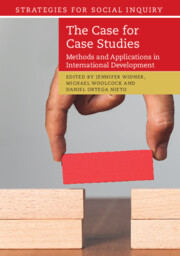
-
- You have access
- Open access
- Cited by 6
-
Cited byCrossref Citations
This Book has been cited by the following publications. This list is generated based on data provided by Crossref.
Dussauge-Laguna, Mauricio I. 2022. The promises and perils of populism for democratic policymaking: the case of Mexico. Policy Sciences, Vol. 55, Issue. 4, p. 777.
Żmudzińska-Nowak, Magdalena and Güler Nakıp, Gizem 2023. Modern Architecture of the Second Half of the XX Century in Local Contexts: Comparative Analysis of Housing Estates in Izmir, Turkey and Tychy, Poland. Sustainability, Vol. 15, Issue. 21, p. 15537.
Vedham, Vidya Parascandola, Mark and Gravitt, Patti E. 2023. Redefining Expertise and Evidence in Global Implementation Research. Cancer Epidemiology, Biomarkers & Prevention, Vol. 32, Issue. 6_Supplement, p. e1.
Agarwala, Nitin 2024. Handbook of Sustainable Blue Economy. p. 1.
Cookson, Tara Patricia and Fuentes, Lorena 2025. Gender Data, Intersectionality, and a Feminist Politics of “Negotiated Refusal”. Violence Against Women,
Zapata Celestino, Kevin 2025. The Inability to Form a Coalition: The Case of the Basic Income Proposal in Mexico. Basic Income Studies,
- Publisher:
- Cambridge University Press
- Online publication date:
- May 2022
- Print publication year:
- 2022
- Online ISBN:
- 9781108688253
- Creative Commons:
-
This content is Open Access and distributed under the terms of the Creative Commons Attribution licence CC-BY 3.0 https://creativecommons.org/creativelicenses
- Subjects:
- Research Methods in Politics, Research Methods in Sociology and Criminology, Research Methods In Sociology and Criminology, Qualitative Research Methods, Politics and International Relations, Research Methods In Politics
- Series:
- Strategies for Social Inquiry


